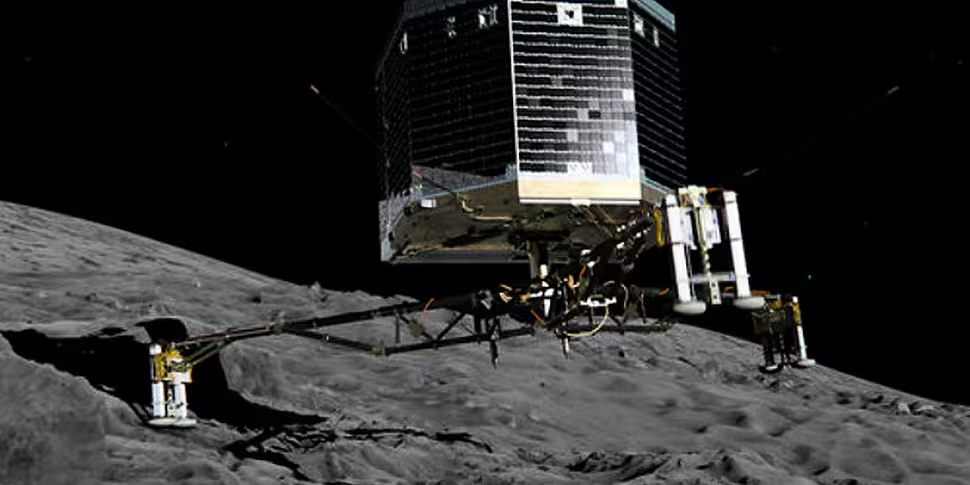The European Space Agency announced yesterday that the comet probe Philae has woken up seven months after scientists lost contact.
The news that data was sent back to Earth over the weekend has been a cause of great excitement for the scientific community, especially since there were fears that the probe would not end up transmitting any information back to Earth.
Speaking to Newstalk Breakfast this morning, science commentator Leo Enright told Ivan, "many, many people - even in mission control - did not believe this could happen.
"After seven months, with some of those months spent possibly at minus 100 degrees centigrade... as the comet came closer to the sun... and sunlight began to fall on the panels of the Philae lander... extraordinarily it sent back a signal late Saturday night," he said.
"It demonstrates that we in Europe are getting a handle on how to build complex things and operate them," Leo argued. "This is something that's important to children coming up who are going to learn how to do this sort of thing and are going to apply it to important things like Tallaght hospital."
He added that places like Tallaght Hospital and professions like farming are going to benefit from the skills learned from the ambitious comet landing mission and the data gathered by Philae.
"It's just the sort of thing we need in Europe to encourage people to get excited about science," Leo concluded.
Philae, a 100kg robot lab, was dropped on to the surface of Comet 67P by mothership, Rosetta, last November after a 10-year trek.
Philae's mission was to unveil the secrets of comets which some experts believe may hold the secrets to how the Solar System was formed.
But instead of attaching itself to the iceball's surface, the little lander bounced and settled at an angle in a dark ditch.
It worked for 60 hours before going to sleep when its solar-powered battery ran flat but the comet has now sparked into life, transmitting signals for two minutes, as well as 40 seconds worth of data.
Some of the data sent back this weekend was historical, indicating that Philae may have been awake earlier but unable to communicate with Rosetta.









